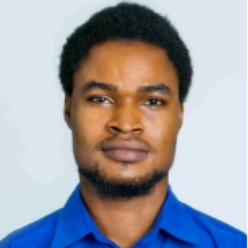
Ademola A. Adesokan
Work place: American University of Beirut/Department of Computer Science, Beirut, 1107-2020, Lebanon
E-mail: aaa277@mail.aub.edu
Website: https://orcid.org/0000-0003-3803-5906
Research Interests: Computer systems and computational processes, Computational Learning Theory, Information Systems, Data Structures and Algorithms, Information Theory, Algorithmic Information Theory, Models of Computation
Biography
Ademola Adesokan is a second-year master’s student in Computer Science Department at the American University of Beirut. He received a bachelor’s degree in computer science from Federal University Dutsin-ma.
His current research interest is in using machine learning models and information retrieval to solve health related issues, claim verification and crisis management problems. He is interested in travels, sports, and social development.
Author Articles
Covid-19 Control: Face Mask Detection Using Deep Learning for Balanced and Unbalanced Dataset
DOI: https://doi.org/10.5815/ijisa.2022.06.05, Pub. Date: 8 Dec. 2022
Facemask wearing is becoming a norm in our daily lives to curb the spread of Covid-19. Ensuring facemasks are worn correctly is a topic of concern worldwide. It could go beyond manual human control and enforcement, leading to the spread of this deadly virus and many cases globally. The main aim of wearing a facemask is to curtail the spread of the covid-19 virus, but the biggest concern of most deep learning research is about who is wearing the mask or not, and not who is incorrectly wearing the facemask while the main objective of mask wearing is to prevent the spread of the covid-19 virus. This paper compares three state-of-the- art object detection approaches: Haarcascade, Multi-task Cascaded Convolutional Networks (MTCNN), and You Only Look Once version 4 (YOLOv4) to classify who is wearing a mask, who is not wearing a mask, and most importantly, who is incorrectly wearing the mask in a real-time video stream using FPS as a benchmark to select the best model. Yolov4 got about 40 Frame Per Seconds (FPS), outperforming Haarcascade with 16 and MTCNN with 1.4. YOLOv4 was later used to compare the two datasets using Intersection over Union (IoU) and mean Average Precision (mAP) as a comparative measure; dataset2 (balanced dataset) performed better than dataset1 (unbalanced dataset). Yolov4 model on dataset2 mapped and detected images of masks worn incorrectly with one correct class label rather than giving them two label classes with uncertainty in dataset1, this work shows the advantage of having a balanced dataset for accuracy. This work would help decrease human interference in enforcing the COVID-19 face mask rules and create awareness for people who do not comply with the facemask policy of wearing it correctly. Hence, significantly reducing the spread of COVID-19.
[...] Read more.Other Articles
Subscribe to receive issue release notifications and newsletters from MECS Press journals